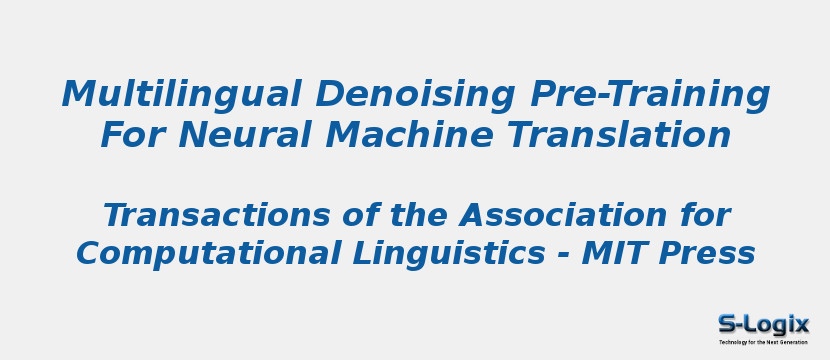Research Area: Machine Learning
This paper demonstrates that multilingual denoising pre-training produces significant performance gains across a wide variety of machine translation (MT) tasks. We present mBART—a sequence-to-sequence denoising auto-encoder pre-trained on large-scale monolingual corpora in many languages using the BART objective (Lewis et al., 2019). mBART is the first method for pre-training a complete sequence-to-sequence model by denoising full texts in multiple languages, whereas previous approaches have focused only on the encoder, decoder, or reconstructing parts of the text. Pre-training a complete model allows it to be directly fine-tuned for supervised (both sentence-level and document-level) and unsupervised machine translation, with no task- specific modifications. We demonstrate that adding mBART initialization produces performance gains in all but the highest-resource settings, including up to 12 BLEU points for low resource MT and over 5 BLEU points for many document-level and unsupervised models. We also show that it enables transfer to language pairs with no bi-text or that were not in the pre-training corpus, and present extensive analysis of which factors contribute the most to effective pre-training.
Keywords:
Author(s) Name: Yinhan Liu, Jiatao Gu, Naman Goyal, Xian Li, Sergey Edunov, Marjan Ghazvininejad, Mike Lewis, Luke Zettlemoyer
Journal name: Transactions of the Association for Computational Linguistics
Conferrence name:
Publisher name: MIT PRESS
DOI: 10.1162/tacl_a_00343
Volume Information: Volume 8, Pages: 726–742.
